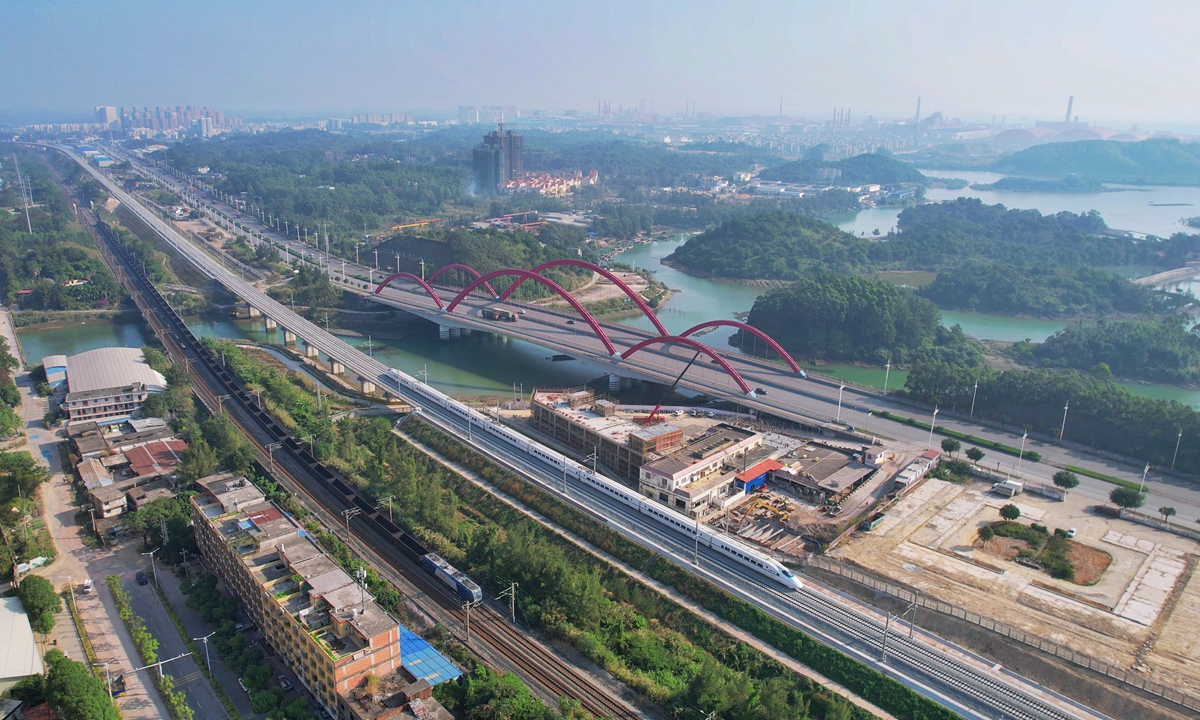
The first medium-speed rail link to China’s border with Vietnam entered service last week, cutting travel time between two coastal cities from an hour to 19 minutes, according to the State Council Information Service.
The 47km Fangdong Railway links the county-level border city of Dongxing, on the Gulf of Tonkin, with the major port of Fangchenggang.
China State Railway Group commented: “After the Fangdong Railway was put into operation, the structure of the road network in the Tonkin Gulf economic zone has been further improved.
“It is of great significance for facilitating the travel of people along the route, boosting border tourism and economic and trade exchanges, and promoting infrastructure connectivity for the Belt and Road Initiative.”
The South China Morning Post notes that China’s exports to the Asean region topped $473bn in the first 11 months of the year, and imports from the 10-nation bloc stood at $352bn.
The construction of the 200km/h line took four years to complete and had to meet a number of geological and environmental challenges during four years of construction.
The launch of the line comes after China and Vietnam announced closer cooperation on cross-border rail development during a state visit by President Xi Jinping to Hanoi earlier this month.
A joint statement released during the visit said that both sides would look to modernise the 855km colonial-era railway between Kunming in southern China’s Yunnan Province and Vietnam’s port city of Haiphong (see further reading).
Currently, trains cannot run through the border due to China and Vietnam’s incompatible gauges. Vietnam is planning to build a 1,500km north–south standard gauge line in the future.
At present, Vietnam has seven main railway routes covering some 2,400km. The government plans to spend around $10.5bn on nine new lines by 2030, doubling the size of the national network. By 2050, it hopes to have a total of 25 routes covering 6,400km.
Further reading:






